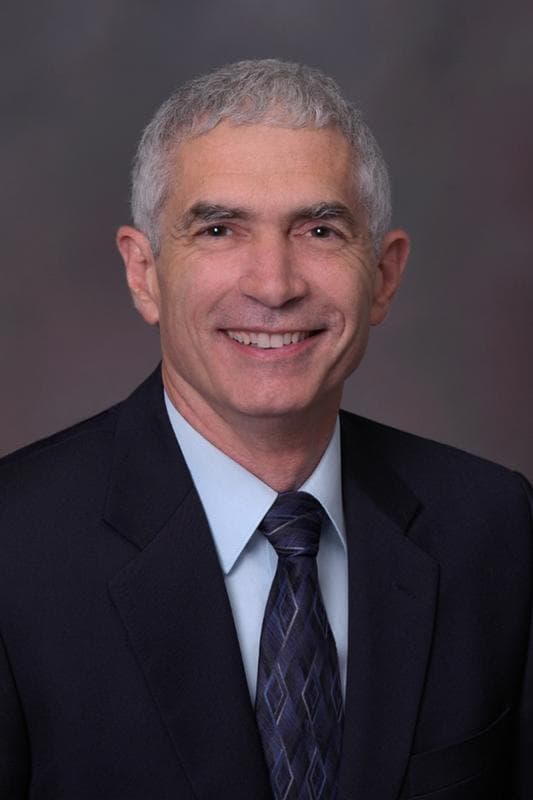PORTLAND, Oregon — As a young physician, Dr. William Toffler parked his faith by the door and blended into the culture of medical professionals. He was good at giving birth control.
He enjoyed performing vasectomies and inserting intrauterine devices.
Painfully, he recounted the time he and another medical student watched a second-trimester saline abortion. His colleague wanted to try performing one and so she did. Then someone asked him if he wanted to have a go. He hadn’t wanted to be involved but was unprepared for the question and didn’t want to make a scene. He said yes.
“Looking back, it was the most regrettable act of my life,” Toffler told the Catholic Sentinel, newspaper of the Archdiocese of Portland.
He’s now embarking on a new venture that allows him to practice medicine in line with his Catholic faith.
Toffler is teaming with a group of other Catholic physicians to start a nonprofit Catholic medical practice, Holy Family Clinic. Based in the Portland suburb of West Linn, the clinic is set to open in September.
The clinic practice will be fully consistent with the U.S. Conference of Catholic Bishops’ “Ethical and Religious Directives for Catholic Health Care Services.” As such, Toffler said the clinic will not participate in or make referrals for abortions or assisted suicide, nor will it administer contraceptives.
“This clinic will stand for all of the right things,” he added, saying he believes patients will receive better health care with improved outcomes in such a system.
Early in his career, his feelings were different.
Toffler came to Oregon more than 40 years ago to work at a clinic in the small logging community of Sweet Home, 95 miles south of Portland. Eventually, he was invited to work at Oregon Health and Science University in Portland, where he was on staff for 34 years.
Toffler’s conversion to a new way of practicing medicine was gradual. While he stopped inserting intrauterine devices because of high risks to women, he continued prescribing birth control pills and performing vasectomies. That is until 1993, when he attended a conference at Holy Rosary Parish in Portland. The conference focused on “Humanae Vitae,” the 1968 papal encyclical that speaks to the theological and sociologic harms of contraception. He was convinced of the truth of that teaching but was afraid to change.
“I wrestled with myself about whether or not I could (stop prescribing birth control),” Toffler recalled. He worried about losing income for his growing family. He worried about whether he could actually do it.
Toffler quietly told the receptionist at his office that he would no longer be seeing patients who wanted birth control. When patients asked about it, he was surprised to learn that many were grateful that he communicated the truth about the harms of contraception as well as the health benefits of alternatives such as natural family planning.
“It never would have happened without learning about the truths outlined in ‘Humanae Vitae,'” Toffler said. “It is a unique document, a clear and unambiguous counterpoint to the culture of death.”
Toffler was raised Catholic but had not been fervent about his faith and putting it into action.
With a father who rose to the rank of brigadier general in the U.S. Army, Toffler’s family moved often. Until he came to Oregon, the longest he had lived anywhere was the four years he studied at the University of Notre Dame. Toffler had not planned on being a doctor and was studying aeronautical engineering.
During his junior year, he read an article about the large airplane manufacturer Boeing laying off thousands of people. So he thought again about his career aspirations. He had always been interested in medicine and decided to change direction.
He finished at Notre Dame with a degree in aerospace engineering, then he took two additional pre-med courses after graduating to meet the requirements for medical school.
Notre Dame wasn’t just the foundation for his career in medicine but also for his future family. He met his wife, Marlene, during a road trip with the college’s rowing club. Marlene was studying education at Virginia Commonwealth University.
The couple managed to survive the challenges of a long-distance relationship and married in 1973.
“She helped me become a better Catholic throughout our marriage of 40 years,” Toffler said. The couple ultimately had seven children, despite Toffler’s admission that he had not been open to having children at first.
Marlene had a love of babies and children that was contagious, he said.
Marlene died in 2014. “There isn’t a day that goes by that I don’t miss her deeply,” Toffler said.
While seeing a young patient in 2019, Toffler spoke with her about the risks of birth control. She ended up giving him a critical review, saying he made her feel guilty about taking birth control. Toffler was warned not to have such discussions and subsequently was put on administrative leave from OHSU. Soon after, his contract was allowed to expire.
Despite the controversy that rocked Toffler’s career, he is admired by Catholic health care providers.
“I’ve looked up to him as a Catholic physician,” said Dr. Charles Bentz, a longtime friend. “He’s very authentic in what he does and very open about it. You know where you stand with him.”
Bentz respects Toffler’s courage in speaking truth.
“He hasn’t changed. He’s the same person he’s always been. The situation, the environment just doesn’t allow for people of conscience to speak,” Bentz said.
Bentz thinks new doctors should look up to Toffler, too.
“When asked who is a good example of a Catholic doctor in the state, I can’t think of anyone else,” Bentz said. “He’s very clear and very humble.
“He’s the example for young Catholic clinicians.”
Wolf is a reporter for the Catholic Sentinel, newspaper of the Archdiocese of Portland.














